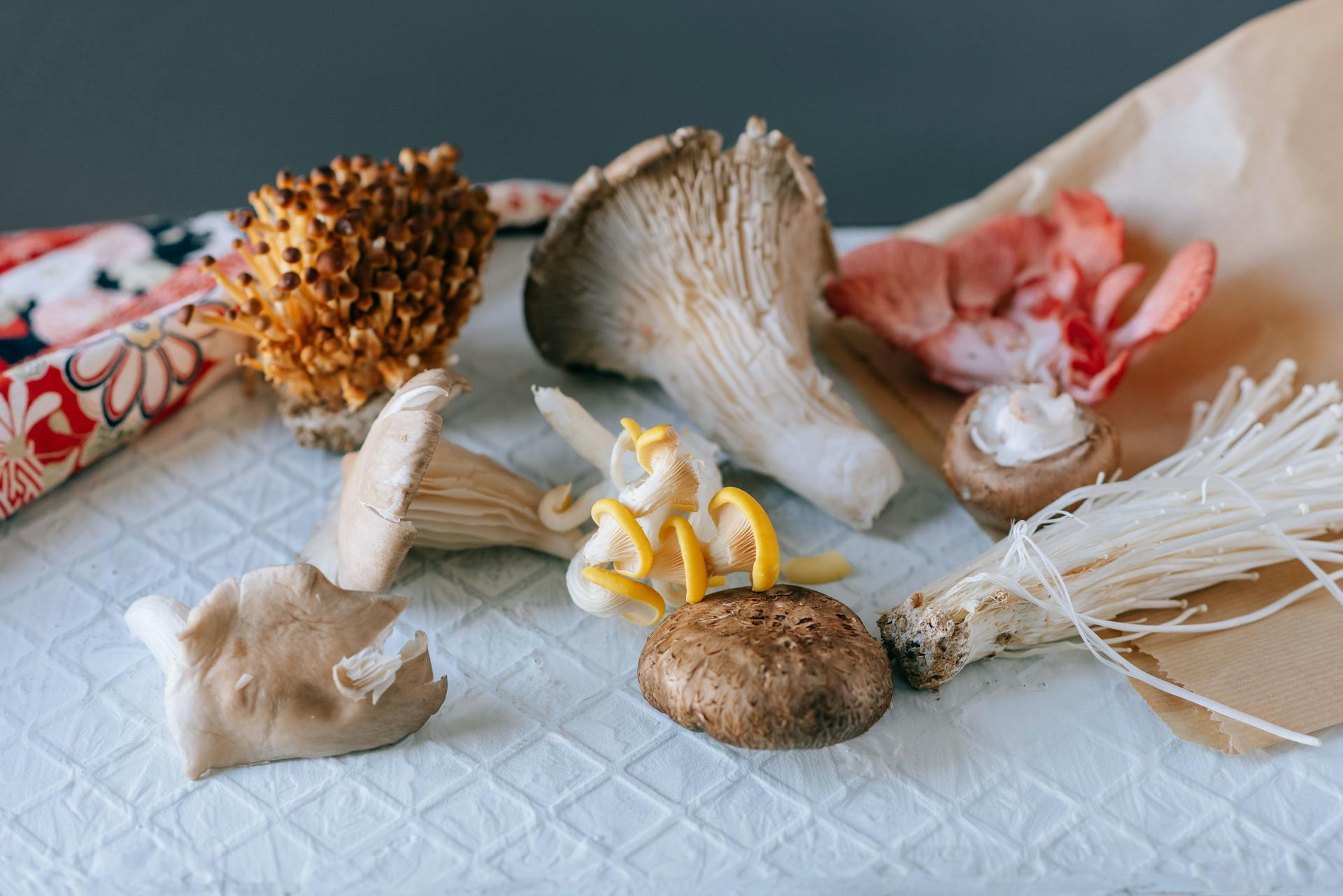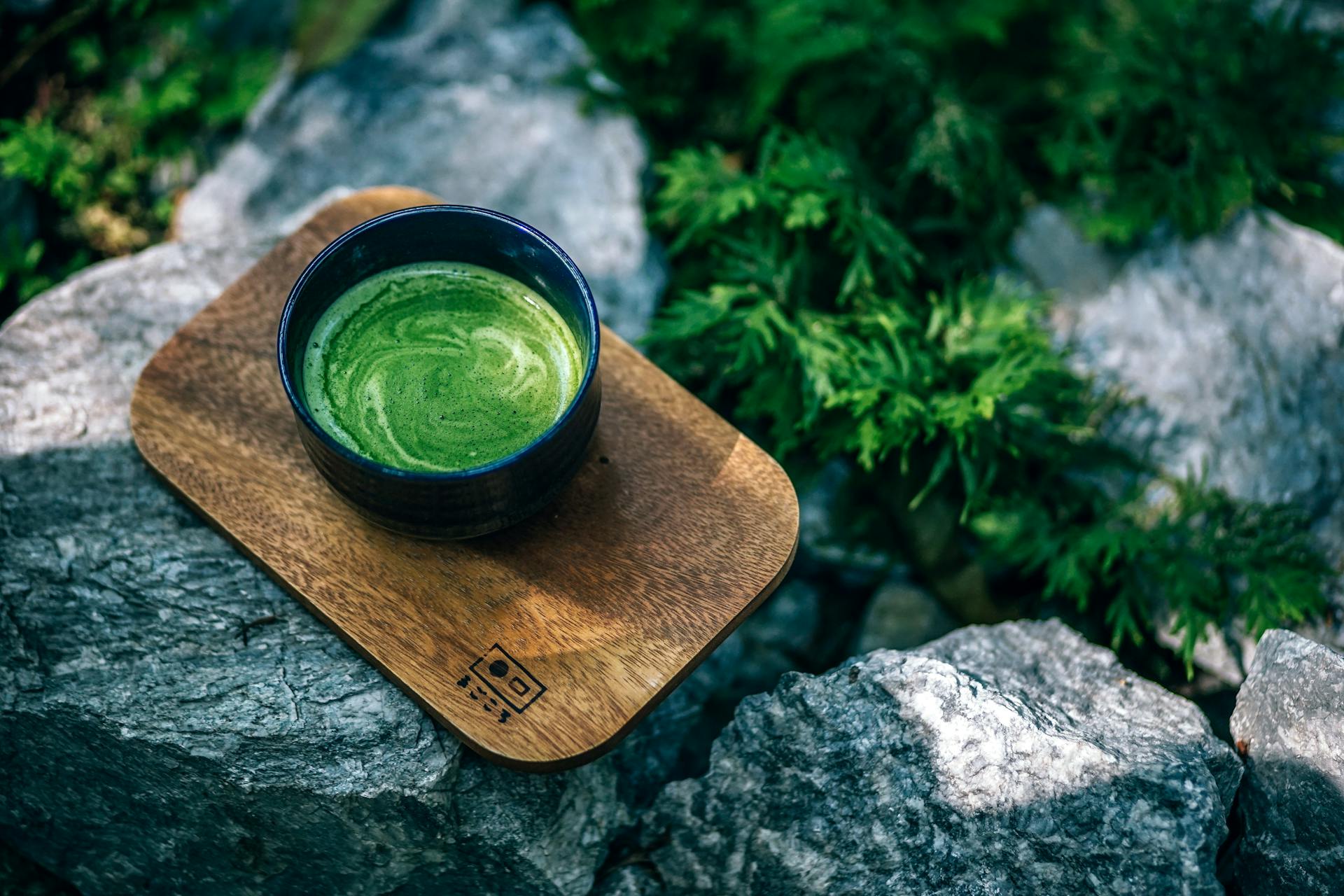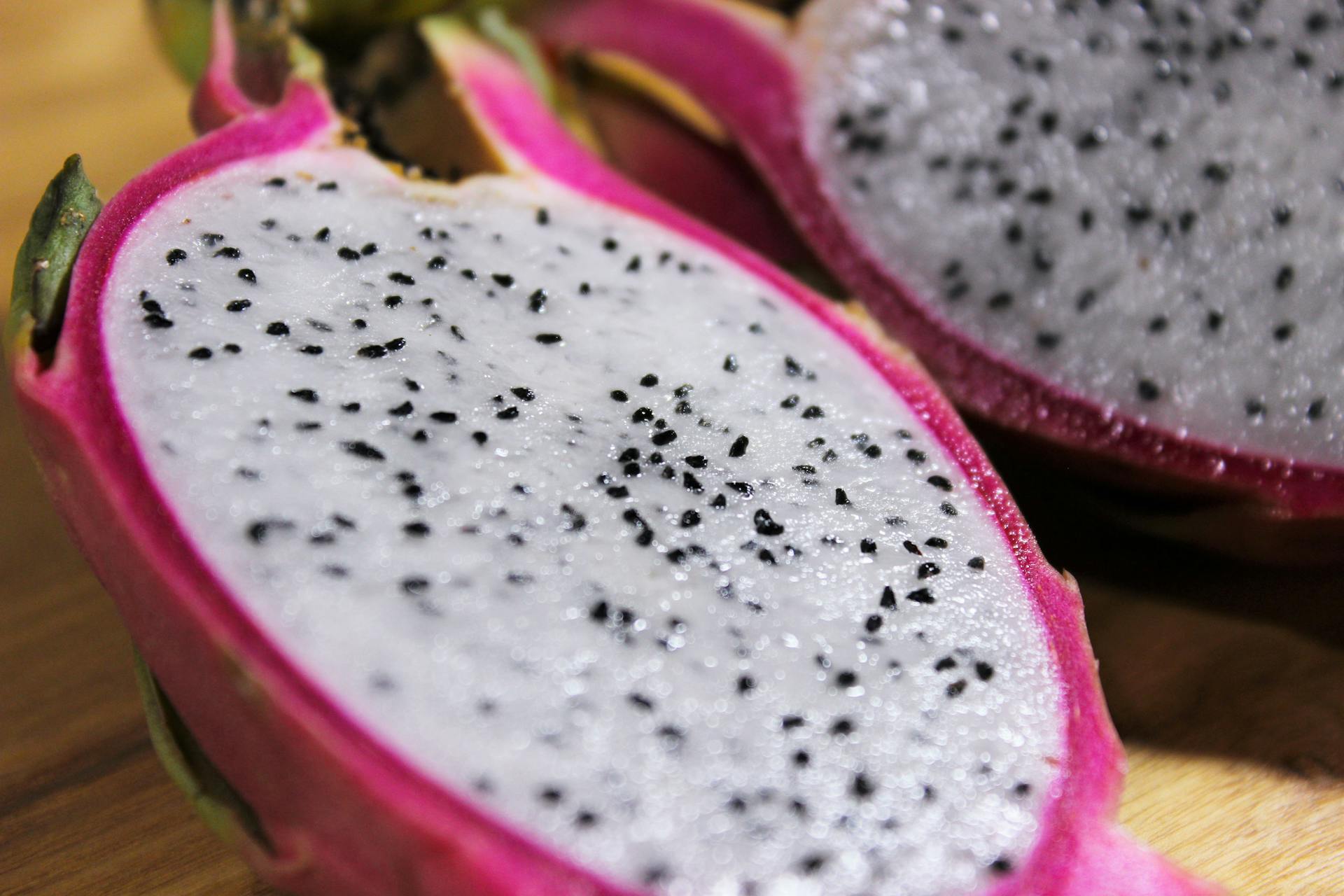
Lion's mane mushroom is a fascinating and unique ingredient that has been used for centuries in traditional Chinese medicine. With its long, shaggy white spines that resemble the mane of a lion, this mushroom is not only visually impressive but also boasts numerous health benefits. From boosting cognitive function to reducing inflammation, lions mane mushroom has gained widespread attention in recent years as a powerful superfood.
One of the most notable health benefits of lions mane is its ability to improve brain health. This mushroom contains compounds called hericenones and erinacines, which have been shown to promote nerve growth factor (NGF) production in the brain. NGF is essential for the growth and survival of neurons, and low levels have been linked to neurodegenerative diseases such as Alzheimer's and Parkinson's. By increasing NGF, lions mane may help protect against age-related cognitive decline and improve overall brain function.
In addition to its brain-boosting benefits, lions mane has also been found to have anti-inflammatory properties. Chronic inflammation is linked to numerous diseases including arthritis, heart disease, and cancer. Studies have shown that lions mane can reduce inflammation in the body by inhibiting pro-inflammatory molecules such as cytokines and prostaglandins. This makes it an excellent natural remedy for those looking to reduce their risk of chronic disease and improve overall health.
Safety and side effects

When it comes to the safety of consuming lions mane mushroom, studies involving humans have reported no adverse effects when taken in lower dosages. Animal studies suggest that lions mane mushroom is safe to consume, even in high doses of up to 23 grams per pound of body weight. However, there have been documented cases of people experiencing difficulty breathing or skin rashes due to allergies.
It's important to note that while lions mane mushrooms are generally safe for consumption, those with a mushroom allergy should avoid them altogether. If you are new to consuming lions mane mushrooms, it is recommended that you start with lower dosages and monitor your body for any adverse effects. Studies involving humans have found no negative side effects when consumed for up to 1 month.
If you do experience any adverse effects such as allergic reactions or skin rashes, it is recommended that you stop consuming lions mane mushrooms immediately. While there have been documented cases of people experiencing these types of adverse effects from consuming lions mane mushrooms, they are relatively rare. In fact, animal studies suggest that lions mane mushroom may actually help boost the immune system and promote healthy brain function.
Where Do They Live? Exploring the Natural Habitat of Animals

Where do lion's mane mushrooms live? These fascinating fungi belong to the Hericium species and can be found in the northern hemisphere, particularly in North America and Eastern Europe. They have a long history of use in traditional Chinese medicine due to their medicinal properties, such as anti-inflammatory and immune-boosting effects.
In terms of production practices, lion's mane mushrooms can be cultivated on wood logs using log cultivation techniques. This is usually done on small scale outdoor sites because these mushrooms are not suitable for intensive indoor production. However, extensive production practices have been developed to meet the growing demand for this mushroom.
Despite its higher prevalence in the United Kingdom and 13 European countries due to poor germination, Lion's mane mushrooms can produce spores that allow them to withstand cold temperatures and frost conditions. Given their red listed status, it is important that we continue to explore their natural habitat and learn more about this specific genus fruits.
1. Disease[edit]
Disease is a major concern when it comes to farming, especially in the case of fungi culture. Lions mane mushroom is no exception as it can be affected by mite pests such as Brennandania lambi acari pygmephoroidea. Proper farm hygiene and heating treatments are important pest management strategies to keep these diseases at bay. Keep reading to learn more about keeping your lions mane mushrooms healthy and disease-free.
2. Competition with other fungi[edit]
Lion's mane mushroom, also known as Hericium erinaceus, is a wood colonizer and a secondary colonizer. It competes with other fungi, including Stereum hirsutum and Trametes versicolor, but it is a good competitor. Lion's mane mushroom thrives on dead wood and is often found growing alongside other Hericium species like Hericium coralloides and fungi-tooth species like Creolophus cirrhatus.
How to Use Lion’s Mane
If you're interested in using lions mane mushroom, there are many ways to incorporate it into your daily routine. As a culinary ingredient, lions mane mushroom has a mild flavor that goes well with many dishes. You can use it as a plant-based meat substitute or add lion's mane powder to your favorite savory dishes for an extra boost of nutrition.
For those who prefer their lions mane mushroom in supplement form, you can purchase supplemental powder stirred into sweet beverages like hot chocolate or simply adding hot water to the mushroom pieces. With its numerous health benefits and versatility, there's never been a better time to start incorporating lions mane mushrooms into your diet!
1. Lion’s Mane Dosage
When it comes to taking Lion's Mane, it's important to follow the recommended dosage on the manufacturers instructions or consult with your health care provider. Dr. Cooperman suggests starting with a conservative approach and recommending 250-500 milligrams of dried mushroom, while Dr. Watson takes 1 gram three times daily. Some experts like OM Organic Mushroom Nutrition recommend using mycelial biomass instead of just the fruit body for optimal benefits. However, since there is insufficient research on this supplement, it's best to speak with your health care provider to determine the proper dosage and whether or not to take Lion's Mane at all.
Discover What's Inside: A Guide to Navigating This Article
Lions mane mushroom, also known as hericium erinaceus, is a type of edible mushroom that grows on broadleaf trees in North America and Asia. In this article, we will explore the potential health benefits of lions mane mushroom, including how it can benefit brain health.
Before purchasing lions mane, it is important to be aware of any possible side effects. We will discuss these later in the article. If you have noticed pom-pom-shaped growths on broadleaf trees in your area, you may have found a source of lions mane mushroom!
In this article, we will cover everything you need to know about lions mane mushroom, including its use in Chinese medicine and potential health benefits that encompass supporting cognition and reducing anxiety. Keep reading to learn more!
1. Ancient Nutrition Organic Lion’s Mane Supplements
Looking for a natural way to support your cognitive health? Look no further than Ancient Nutrition's Organic Lion's Mane Supplements! Made from USDA certified organic mushroom tablets, this supplement contains unique compounds and nutrients found in organic lions mane and ashwagandha designed to help support healthy cognitive function. Plus, it can even help maintain good immune system balance.
Discover the Secrets of the Exotic Lion’s Mane Mushroom!

Lion’s Mane is an exotic mushroom known for its potential anti-inflammatory properties. This Europe medicinal mushroom dates back to 450 BCE when Greek physician Hippocrates discovered its healing powers in wound cauterization. In a 2017 study, Restorative MedicineSpelman found that Lion's Mane can enhance neurological activity and offer potential health benefits.
The Lion's Mane Hericium erinaceus journal of Restorative Medicine 20176119-26 states that this mushroom grows on dead broadleaf tree trunks and broadleaf trees shed their leaves seasonally. The visible fruiting body resembles roots and grows at the bottom structure. The root-like mycelium offers many potential health benefits.
Overall, the Lion's Mane mushroom offers many potential health benefits that have been discovered through ancient practices and modern studies alike. From its origins in wound cauterization to its current use as a restorative medicine, this exotic fungus has much to offer for those seeking natural remedies for various ailments.
Discover the Amazing Health Benefits of Lion's Mane
Lion's mane mushroom has been the subject of many studies for its potential benefits on both physical and cognitive health. According to a research published in Food Biochemistry 2021458, this mushroom is rich in natural bioactive compounds that exhibit disease-fighting properties including anti-cancer and anti-microbial effects. Additionally, it has antioxidant activity that protects nerves from damage caused by free radicals.
A study published in the Lions Mane Mushroom Journal concluded that this mushroom displays additional health-promoting benefits such as regulating blood sugar, reducing high blood pressure, promoting healthy energy levels, combating fatigue, and preventing excess blood lipid accumulation. Moreover, it protects heart health by lowering bad cholesterol levels and improving circulation.
Lion's mane also slows biological aging by protecting liver and kidney health. A 2015 abstract from Food Chemistry suggests that it may prevent oxidative stress-induced cellular damage in the liver and protect against kidney injury caused by toxins. With all these potential benefits, it's no wonder why lion's mane is gaining popularity as a natural supplement to support overall well-being.
1. Potential Alternative Treatment for Depression
Research shows that lions mane mushroom has potential as an alternative treatment for depression. A 2020 abstract in Molecular Sciences (2020,211,163) highlights the therapeutic potential of Hericium erinaceus in easing depression symptoms by increasing nerve growth brought on by stressful situations and minimizing inflammation linked to depressive disorder. Studies demonstrate that lions mane increases nerve growth factor, helping ensure sufficient neurotransmitters for mood regulation and optimal aging. As a pharmacology functional medicine practitioner at Oakley Wellness, Lexi Watson emphasizes the importance of this aspect for brain health and overall well-being.
Unveiling the Truth: Possible Side Effects of Lions Mane
If you're considering adding lions mane mushroom to your diet, it's important to be aware of the possible side effects. While this mushroom is generally considered safe for consumption, there are some potential risks that you should know about. In this post, we'll take a closer look at some of the most common side effects associated with lions mane and what you can do to minimize your risk.
According to Dr. Watson, a medical condition expert, some people may experience gastrointestinal discomfort or nausea after consuming lions mane. Skin rash is another possible side effect that has been reported in a 2022 case study. If you notice any of these symptoms after taking this supplement, it's important to discontinue use and consult with your health care provider immediately.
Allergic reactions are also a concern when it comes to lions mane mushroom. If you have any known allergies, especially those related to fungi or mushrooms, it's important to speak with your doctor before trying this supplement. Hives, swelling, diarrhea and abdominal pain are all potential signs of an allergic reaction that require immediate medical attention. In conclusion, while there are many benefits associated with consuming lions mane mushroom, it's important to be aware of the possible risks as well. If you experience any negative side effects after taking this supplement, stop using it immediately and speak with your doctor or allergist for guidance on next steps.
1. Apothékary Lion’s Mane Powder
Looking for a way to boost your mental health and reduce stressors? Apothékary Lion’s Mane Powder may be the answer. Made from the exceptionally high level of nutrients found in lions mane mushroom, this powder can provide mental benefits that can help you power through an intense workout or just make it through a busy day. With a savory flavor profile that includes options like coffee maple syrup and chai spices, it's a healthy gatorade alternative that's also delicious!
Why the "Bottom Line" is Key to Success in Life and Business

The "Bottom Line" is key to success in life and business. One important aspect of this is maintaining good health, which can be achieved through nutrition and exercise. The Lions Mane Mushroom, known for its many health benefits, including dementia-reducing mild symptoms, repairing nerve damage, and being a strong anti-inflammatory antioxidant with immune-boosting abilities, may be the key to improving overall health.
Current research on lions mane mushrooms has shown promising results in studies involving humans. With its potential to prevent heart disease, cancer, ulcers, and other chronic diseases, scientists are working hard to develop practical health applications for this superfood. Medically reviewed studies have found that consuming lions mane mushrooms can lead to significant improvements in cognitive function and memory retention.
In conclusion, incorporating lions mane mushrooms into your diet could be the key to unlocking a healthier future. Thanks to their numerous health benefits and ongoing research into possible applications for humans, these fungi are sure to play an important role in our lives moving forward. So why not give them a try? Who knows what kind of positive impact they could have on your life by February 7th 2023!
1. How we reviewed this article:
Here at [website name], we take your health seriously. That's why our articles are carefully curated and reviewed by experts in the wellness space. For this article on lions mane mushroom, we had Erica Julson, Alina Sharon, and Julia Stevenson research and write on the topic. Our medically reviewed version was then copy edited by Delores Smith-Johnson before being published on Feb 7, 2023. We also had Alexandra Perez PharmD MBA BCGP ensure that all information presented is accurate and up-to-date as of its publication date on Dec 19, 2018. Read on to learn more about the benefits of lions mane mushroom!
2. Read this next
Read this next: Lions mane mushroom is one of the six medicinal mushrooms that can aid in healing and regulate bodily systems. In a blog post by Youby Kerri-Ann Jennings MS RD, lions mane mushroom is shown to have health benefits such as fighting cancer, managing stress, and boosting heart health and immune function. This versatile mushroom also has a rich taste and can be an excellent substitute for shiitake mushrooms in any recipe that calls for it. If you're interested in incorporating more anti-inflammatory foods into your diet, be sure to check out the article which lists 13 powerful anti-inflammatory foods with lower chronic inflammation effects such as low-carb vegetables and fruits!
A Guide to Buying Lion's Mane: Factors You Should Consider
Lion's mane mushroom, also known as Hericium erinaceus, is a functional mushroom that has been used in traditional Chinese medicine for centuries. When purchasing lion's mane, Dr. Cooperman recommends reading labels carefully and looking for high-quality matches. Some lion's mane products claim to be organic but do not have the USDA certified organic mushroom offering.
Dr. Watson advises assessing the part underground from where the lion's mane supplement was sourced. The quality of the substrate can determine the potency and purity of the final product. Companies that provide professional-grade supplements often work hard to ensure their mushrooms are grown in controlled environments that optimize potency.
Third-party testing is another important factor to consider when shopping for organic lion's mane supplements. Reputable brands will have their products tested by independent labs to verify potency and purity, ensuring you get a safe and effective product. With these tips, finding a high-quality lion's mane supplement should be an easy task!
1. References
References for the health-promoting properties of Hericium erinaceus (lion's mane mushroom) can be found in various scientific journals such as UK Fungal Ecology 2011, Slovakia Fungal Ecology 2017B, and Bioactive Compounds Journal. Studies have shown that consumption of Hericium erinaceus lions mane mushroom fruiting bodies may have a hypolipidaemic effect and inhibitory effect on collagen-induced platelet aggregation. In-vivo studies have also suggested potential cognitive benefits with dietary mushroom supplementation. With all these benefits, it's no wonder why lion's mane supplements are hitting the dinner table more often.
Frequently Asked Questions
What are the side effects of Lion's Mane?
Lion's Mane may cause mild gastrointestinal discomfort, such as nausea and diarrhea, in some individuals. However, it is generally considered safe and well-tolerated with no known serious side effects.
How do Lion's Mane mushroom benefits your brain?
Lion's Mane mushroom benefits your brain by promoting nerve growth and protecting against neurodegenerative diseases. Its compounds may also improve cognitive function and reduce anxiety and depression symptoms.
Can Lion's Mane extracts treat depression and anxiety?
Lion's Mane extracts have been shown to have potential benefits for depression and anxiety through their ability to support the growth of new brain cells and reduce inflammation. However, further research is needed to determine its effectiveness as a standalone treatment.
What is Lion's Mane good for?
Lion's Mane is good for improving cognitive function, reducing inflammation, and promoting nerve regeneration in the brain and body.
Does a lioness have a mane?
No, lionesses do not have a mane. Only male lions have manes that they use to attract females and intimidate rivals.
Featured Images: pexels.com

